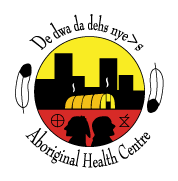“housing first” program is expected to give Hamilton’s homeless aboriginals a real chance at a stable and long-term place to live.
The project, Homeward Bound: From Homelessness to Community,” kicked off Friday at the Hamilton Aboriginal Homelessness Symposium.
The project — just like its counterpart programs helping other homeless populations — will start by finding a person a home. Once housed, myriad community agencies and supports will be tapped so homelessness doesn’t reoccur. This means the person will get physical and mental health assessments and be referred to the appropriate help required. Connections to community supports and agencies that provide food, furnishings and clothing will also be provided.
The final step is to get the person involved in the community.
“Those who are chronically and episodically homeless will have a case manager,” explains Constance McKnight, executive-director of the De Dwa Da Dehs Nye>s Aboriginal Health Centre and Homeward Bound leader.
She said the project gives the homeless hope.
“We’re excited because for many of the homeless aboriginals in Hamilton we’ll be coming into contact with, this program will be the first step to recovery.”
The program starts with providing housing, but is also providing “health, wellness and connections to appropriate services and supports,” she said.
McKnight expects outreach workers will be ready to hit the streets by June to seek out the homeless and get them started on the path to having a home.
The symposium heard that in a recent Social Planning and Research Council survey of 129 homeless people in downtown Hamilton, about half were of aboriginal ancestry.
Speakers referenced the specific challenges aboriginals face that lead to homelessness in urban centres. These include the intergenerational trauma and impact of residential schools and historic government policies of removing thousands of children from their families and communities and putting them in foster care, loss of culture as a result, and of racism and discrimination.
Many Aboriginals leaving reserves for urban centres also have little education and no employment or training, said Peter Menzies, former head of aboriginal services at the Centre for Addictions and Mental Health (CAMH).
“It’s almost like migrating from the Third World,” he said. “Many are fearful of the government, police and even you (aboriginal services) because you have urban values. All these things are being played out.”
cfragomeni@thespec.com
905-526-3392 | @CarmatTheSpec



